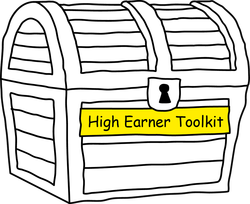 When people can't get a job they blame it on all manner of things: they're racist, they're fattist, it's because of my hair or my hijab or because immigrants are taking up all the jobs - I've never heard this one though and it's more likely now than ever before that your own crazy opinions are keeping you from the job you want. I love social networking as much as the next person, however, I am all too aware that what you write can make or break your chances of getting jobs. Nowadays your résumé/CV is not your potential employer's only source of information about you; they tend to google you as well. Would you be happy for your employer to see everything that comes up about you? Using social networks consciously and responsibly has never been more important. What you write, share and 'like' matters; it gives insight to your personality and temperament; it could be standing between you and that highflying job. Here are my tips: THE HEADLINE TEST Before you post anything think: “Would I be proud to see this shared on the front cover of The Wall Street Journal or The Financial Times?” I learnt this tip on my first job at Goldman Sachs. ANGER BACKTRACK If you’re angry, annoyed or irritated do not tweet, blog or post anything. Feel free to rant and rave about it in your personal word processor but leave it be until you are not angry or at least less angry and you’ll find that it was going to be one of those posts you later regretted. DE-CONNECT If you tweet a lot of random stuff, don't connect your twitter to your LinkedIn. You know employers and headhunters officially trawl LinkedIn profiles to find out stuff, right? CLOSE UP So you’re mr or ms popular: you’re the entertainment organiser at your school or university. Good for you, but that doesn’t mean you need to have a completely open Facebook profile. If people are interested in what you have to say they can follow you on Facebook in which case they only see your “public” posts not those to “friends” only. Go through your personal info and carefully select what is viewable by the public and what is not. It should only be stuff that adds positive value to your employability. CHOOSE YOUR FRIENDS CAREFULLY Facebook didn’t always have the subscription/follow button so people used to accept friends willy nilly. Personally, I don’t friend anyone that I don’t actually know. Decide what criteria people need to satisfy to be your “friend” on Facebook and only friend those. Everyone else can subscribe to your public posts. THE FUNNY TEST Funny or hateful? The biggest temptation is to share stuff that makes us laugh. Once you’ve had a good laugh you always want to share. Making people laugh makes them like us and everyone loves to be liked. Unfortunately, a lot of funny stuff is funny because it’s taking a stab at a certain segment of society. Before you share funny stuff, think about whether it makes you look like a misogynist, a racist, a homophobe, a pervert or whether it is persecuting a given religious group. I know a guy who had a nice job that he could have stayed in for years but ended up having to resign because he was sharing inappropriate material on an internal group chat. PSEUDONYM You don’t have to use your real name. Even if you use a real photo of yourself if you create a pseudonym you’re going to be hard to find with google searches. If you’re working under an alias you have a lot more leeway in terms of what you tweet and share, however, keep in mind that someone in the ‘inner circle’ could betray your confidence. Have a business or life question you want me to answer? Please email it to me with the subject “Question”. Note that all such questions will be answered as a blog post and will be sent to my full email list.
Want to start a business? Check out The Money Spot Program.
0 Comments
Leave a Reply. |
Heather on WealthI enjoy helping people think through their personal finances and blog about that here. Join my personal finance community at The Money Spot™. Categories
All
Archives
September 2023
|
Heather Katsonga-Woodward, a massive personal finance fanatic.
** All views expressed are my own and not those of any employer, past or present. ** Please get professional advice before re-arranging your personal finances.

 RSS Feed
RSS Feed


